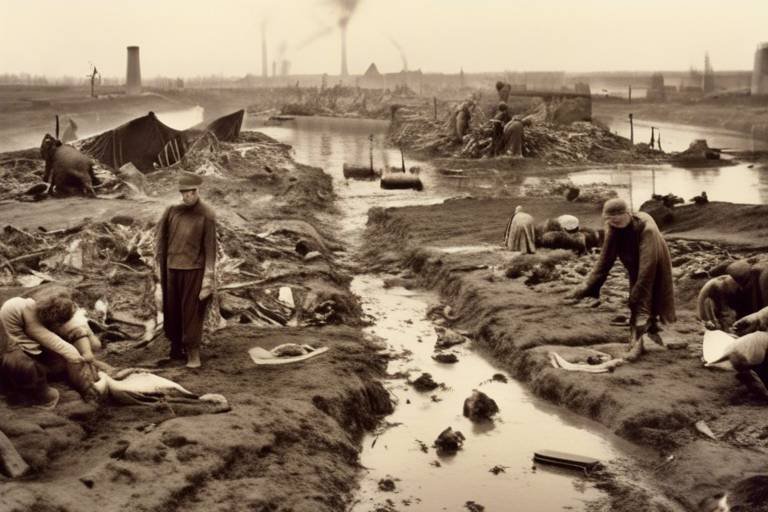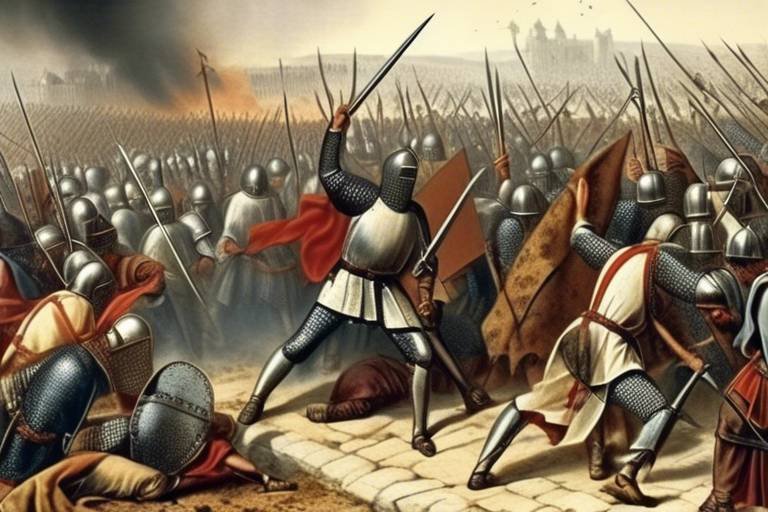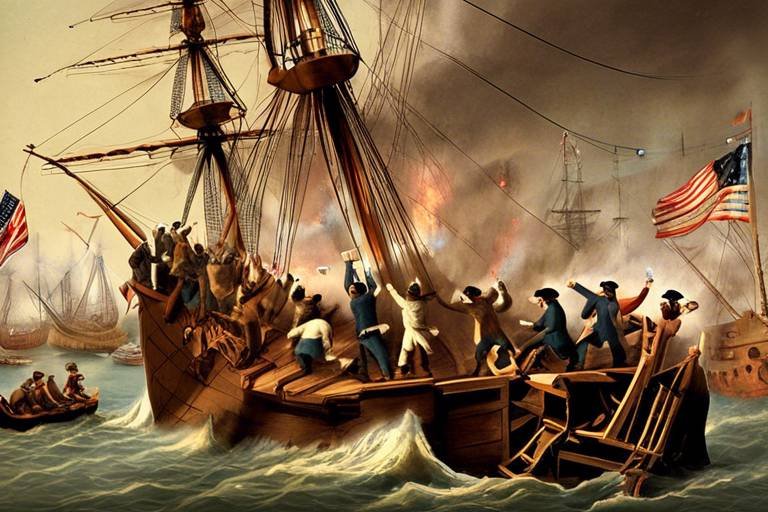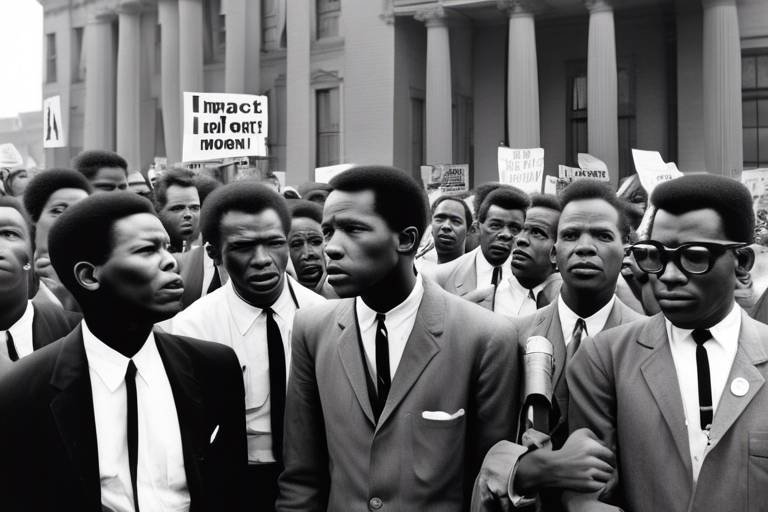The Age of Exploration - Discovering New Worlds
Exploring the era of maritime discovery that expanded European horizons, leading to encounters with new lands, cultures, and trade routes. Learn about key explorers, motivations, impacts, and legacies of this transformative period in history.
The Age of Exploration, also known as the Age of Discovery, was a time of great curiosity and ambition when European nations set sail to uncover new lands and expand their influence across the globe. This period marked a significant shift in the way people viewed the world, opening up possibilities that were previously unimaginable.
During this remarkable era, explorers embarked on daring voyages across treacherous seas, facing unknown dangers and challenges as they sought to chart unexplored territories. Their journeys were fueled by a thirst for knowledge, a desire for wealth and power, and the hope of finding new trade routes to the lucrative markets of Asia.
As ships sailed further from familiar shores, they encountered diverse cultures, exotic goods, and uncharted territories, forever altering the course of history. The Age of Exploration was a time of both excitement and uncertainty, where every voyage held the promise of discovery and the threat of the unknown.
Explorers like Christopher Columbus, Vasco da Gama, and Ferdinand Magellan became household names, celebrated for their bold expeditions that pushed the boundaries of known geography. Their discoveries reshaped the world map, connecting distant continents and paving the way for global trade and exchange.
Through the exploration of new worlds, European powers established vast empires, colonizing distant lands and exploiting their resources. This expansion had profound impacts on indigenous peoples, leading to cultural clashes, disease outbreaks, and the enduring legacy of colonization.
Technological advancements played a crucial role in enabling these epic voyages, with innovations in navigation, ship design, and cartography revolutionizing maritime travel. These breakthroughs transformed the seas from barriers to highways, facilitating the exchange of goods, ideas, and cultures between distant shores.
The legacy of the Age of Exploration continues to shape our world today, influencing global trade networks, cultural interactions, and the distribution of power. This period of discovery laid the foundation for the modern interconnected world we live in, where the echoes of past explorations can still be heard.
While the Age of Exploration brought about significant progress and innovation, it also sparked controversies and critiques that continue to be debated to this day. Ethical dilemmas, environmental impacts, and questions of historical interpretation have prompted a reevaluation of the era's legacy, challenging us to consider its full impact on our shared history.
1. What were the main motivations driving the Age of Exploration?
2. How did technological advancements contribute to the success of maritime exploration?
3. What were some of the key consequences of European exploration on indigenous populations?
4. How did the Age of Exploration influence global trade and exchange?
5. What are some of the ongoing controversies surrounding the legacy of exploration?

Origins of Exploration
The origins of the age of exploration can be traced back to a convergence of various factors that ignited a wave of maritime discovery in the 15th century. At the heart of this era was a thirst for wealth and power, as European nations sought to expand their influence and control over new territories. The quest for trade routes to Asia was a driving force behind many expeditions, motivated by the lucrative spice trade and the desire to bypass the Ottoman Empire's monopoly on these valuable goods.
Additionally, advancements in technology played a crucial role in enabling these ambitious voyages. Innovations such as the development of the astrolabe and the compass revolutionized navigation, allowing sailors to venture further into uncharted waters with greater precision. The emergence of more seaworthy ship designs like the caravel also facilitated longer journeys across the open seas.
The Renaissance spirit of curiosity and discovery further fueled the age of exploration, with scholars and intellectuals seeking to expand their knowledge of the world beyond known boundaries. The era was characterized by a sense of wonder and ambition, driving explorers to push the limits of what was deemed possible and venture into the unknown in search of fame, fortune, and glory.
As European powers competed for dominance and sought to stake their claim in uncharted territories, the age of exploration marked a pivotal moment in history that would forever alter the course of global interactions and shape the modern world as we know it.

Key Explorers and Voyages
Exploring the era of maritime discovery that expanded European horizons, leading to encounters with new lands, cultures, and trade routes. Learn about key explorers, motivations, impacts, and legacies of this transformative period in history.
Explore the factors that sparked the age of exploration, including technological advancements, the desire for wealth and power, and the search for new trade routes to Asia.
During the age of exploration, numerous brave adventurers set sail to discover new lands and expand the known world. Among these key explorers were Christopher Columbus, Vasco da Gama, and Ferdinand Magellan. These pioneers embarked on groundbreaking voyages that reshaped the world map, opening up new possibilities and connections between distant lands.
Examine the consequences of European exploration on indigenous populations, including cultural clashes, disease spread, and the lasting effects of colonization.
Learn about the establishment of global trade networks, the exchange of goods and ideas between continents, and the economic impact of the age of exploration.
Understand the role of innovations like improved navigation tools, ship design, and cartography in enabling long-distance sea voyages during the age of exploration.
Delve into the discovery and colonization of the Americas, including the encounters between European explorers and Native American civilizations.
Reflect on the enduring effects of the age of exploration on world history, including cultural diffusion, the spread of Christianity, and the reshaping of global power dynamics.
Consider the ethical dilemmas, environmental impacts, and ongoing debates surrounding the age of exploration, prompting a reevaluation of its historical significance and consequences.
Stay tuned for answers to common queries about the age of exploration and its impact on global history.

Impacts on Indigenous Peoples
During the age of exploration, the impacts on indigenous peoples were profound and often devastating. As European explorers encountered new lands and civilizations, they brought with them not only goods and ideas but also disease, warfare, and cultural clashes that forever altered the lives of indigenous populations. The consequences of European exploration on native peoples were multi-faceted and continue to shape the world we live in today.
One of the most significant impacts on indigenous peoples was the introduction of new diseases brought by European explorers. Diseases such as smallpox, measles, and influenza, to which native populations had no immunity, ravaged entire communities, leading to widespread death and population decline. This demographic catastrophe had long-lasting effects on indigenous societies, disrupting social structures and traditional ways of life.
Furthermore, the arrival of European explorers often led to violent conflicts and the displacement of native populations from their ancestral lands. The quest for resources, land, and power by European colonizers resulted in the marginalization and exploitation of indigenous peoples, as their territories were seized and their cultures suppressed in the name of conquest and colonization.
The cultural impact of European exploration on indigenous peoples was also significant. As European beliefs, customs, and languages were imposed on native populations, traditional practices and knowledge systems were eroded, leading to the loss of cultural identity and heritage. The forced assimilation of indigenous peoples into European ways of life further exacerbated the marginalization and disenfranchisement of native communities.
Moreover, the legacy of European exploration continues to shape the socio-economic disparities and power dynamics between indigenous peoples and settler societies. The enduring effects of colonization, including land dispossession, discrimination, and inequality, have created ongoing challenges for indigenous communities seeking to preserve their traditions, reclaim their rights, and address historical injustices.

Global Trade and Exchange
The age of exploration ushered in a new era of global trade and exchange, connecting distant lands and cultures in ways never seen before. European explorers ventured into uncharted waters, seeking new trade routes to the riches of the East. The discovery of the Americas by Christopher Columbus in 1492 opened up a vast new world for trade and commerce.
Global trade networks were established, linking Europe, Africa, Asia, and the Americas in a complex web of exchange. Goods such as spices, silk, gold, and silver flowed between continents, enriching nations and fueling economic growth. The Columbian Exchange, named after Columbus, facilitated the transfer of plants, animals, and diseases between the Old World and the New World, transforming ecosystems and societies on both sides of the Atlantic.
European exploration not only led to the exchange of material goods but also sparked the sharing of ideas, technologies, and cultures. The encounter between different civilizations fostered a cross-pollination of knowledge and innovations, shaping the development of societies around the globe. The blending of diverse traditions and practices laid the foundation for the multicultural world we inhabit today.
The economic impact of global trade during the age of exploration cannot be overstated. The influx of wealth from overseas territories fueled the rise of powerful empires and city-states, transforming the balance of power on the world stage. Merchants and traders amassed fortunes through lucrative trade routes, while new markets emerged for luxury goods and commodities.
Technological advancements in navigation, shipbuilding, and cartography played a crucial role in facilitating long-distance trade and exploration. Improved compasses, astrolabes, and maps enabled sailors to navigate the vast oceans with greater precision, opening up new opportunities for trade and discovery. The development of faster and more seaworthy ships allowed for the efficient transport of goods across vast distances, revolutionizing the maritime industry.
In conclusion, the age of exploration revolutionized global trade and exchange, shaping the interconnected world we live in today. The legacy of this transformative period continues to influence international relations, economics, and cultural interactions, highlighting the enduring impact of exploration on the course of human history.

Technological Advancements
The Age of Exploration was not only a period of geographical discovery but also a time of remarkable technological advancements that revolutionized maritime navigation. Innovations in ship design, navigation tools, and cartography played a pivotal role in enabling explorers to undertake long and perilous sea voyages with greater precision and safety. Ships were transformed from simple vessels into sophisticated seafaring machines capable of enduring the unpredictable challenges of the open ocean. The development of the caravel, a versatile and maneuverable ship design, allowed explorers to navigate more efficiently and withstand harsh sea conditions during their expeditions. Additionally, advancements in navigation tools such as the astrolabe and compass provided sailors with the means to determine their position at sea with greater accuracy, reducing the risk of getting lost in uncharted waters. The art of cartography also saw significant progress, with mapmakers refining their techniques and producing more detailed and realistic maps that accurately represented newly discovered lands and sea routes. These technological innovations not only facilitated the exploration of unknown territories but also laid the foundation for future maritime endeavors and the establishment of global trade networks.

Exploration of the New World
The exploration of the New World marked a pivotal moment in history, as European voyagers set sail to discover lands beyond their known horizons. Led by the spirit of adventure and the quest for riches, explorers like Christopher Columbus embarked on daring journeys that would forever alter the course of human civilization.
Upon reaching the shores of the Americas, European explorers encountered vibrant and diverse Native American civilizations, each with its own rich culture and traditions. The initial interactions between these two worlds were a mix of curiosity, misunderstanding, and conflict, shaping the future of both continents.
Through the exploration of the New World, Europeans brought back exotic goods, plants, and animals previously unknown in Europe. This exchange of resources, known as the Columbian Exchange, transformed economies and diets on both sides of the Atlantic, leading to a global interconnectedness never seen before.
The colonization of the Americas by European powers also had profound consequences for the indigenous peoples of the region. The arrival of settlers brought diseases that decimated native populations, while cultural clashes and forced assimilation forever changed the social fabric of the New World.
As European powers established colonies and trade networks in the Americas, the landscape of the continent was forever altered. Cities grew, new agricultural practices were introduced, and the flow of goods and ideas across the Atlantic reshaped societies on both sides of the ocean.
The exploration of the New World was not without its controversies and ethical dilemmas. The treatment of indigenous peoples, the impact on the environment, and the legacy of colonialism continue to be subjects of debate and reflection, prompting a reevaluation of the costs and benefits of this transformative period in history.

Legacy of Exploration
As we reflect on the legacy of exploration, it becomes evident that the age of maritime discovery has left an indelible mark on the course of human history. The impact of the explorers who dared to venture into the unknown reaches far beyond their time, shaping the world we live in today.
One of the most significant legacies of exploration is the cultural diffusion that occurred as a result of encounters between different civilizations. The exchange of ideas, technologies, and traditions between Europe, Asia, Africa, and the Americas transformed societies and laid the foundation for our interconnected global world.
Moreover, the spread of Christianity during the age of exploration cannot be understated. Missionaries accompanying explorers played a crucial role in propagating the Christian faith to new lands, influencing the beliefs and practices of indigenous peoples and shaping the religious landscape of the world.
Another enduring legacy of exploration is the reshaping of global power dynamics. The establishment of colonial empires by European powers, fueled by the desire for resources and territorial expansion, led to the rise of dominant nations and the subjugation of indigenous populations. The consequences of this power shift continue to reverberate through geopolitics today.
Furthermore, the age of exploration sparked a wave of scientific and intellectual advancements that laid the groundwork for modern knowledge and discovery. Innovations in navigation, cartography, and astronomy revolutionized our understanding of the world and paved the way for future explorations and scientific breakthroughs.
In conclusion, the legacy of exploration is a complex tapestry of cultural exchange, religious influence, power struggles, and scientific progress. By delving into the achievements and controversies of this transformative period, we gain a deeper appreciation for the forces that have shaped our world and continue to influence our collective destiny.

Controversies and Critiques
As we delve into the age of exploration, it becomes imperative to address the controversies and critiques that have emerged surrounding this pivotal period in history. While the age of exploration brought about significant advancements in navigation, trade, and cultural exchange, it also raised ethical dilemmas and sparked debates that continue to shape our understanding of this era.
One of the primary controversies surrounding the age of exploration is the ethical implications of European expansion into previously uncharted territories. The encounters between explorers and indigenous populations often resulted in cultural clashes, exploitation, and violence. The question of whether the benefits of exploration outweighed the harm inflicted on native peoples remains a topic of heated discussion among historians and scholars.
Furthermore, the environmental impacts of European exploration cannot be overlooked. The introduction of foreign flora and fauna to newly discovered lands, along with deforestation and resource extraction, had lasting consequences on ecosystems and biodiversity. The ecological footprint of exploration continues to be a subject of concern in contemporary discussions on sustainability and conservation.
Another critique of the age of exploration revolves around the economic disparities and power dynamics that emerged as a result of global trade networks. While European nations reaped the benefits of newfound wealth and resources, many regions of the world faced exploitation and economic subjugation. The legacy of colonialism and imperialism, rooted in the age of exploration, continues to shape socio-economic structures and international relations today.
Moreover, the ongoing debates surrounding the age of exploration prompt us to reevaluate its historical significance and consequences. By critically examining the motivations, impacts, and legacies of this era, we can gain a deeper understanding of the complexities and nuances of global exploration and its enduring effects on our world.
Frequently Asked Questions
- What sparked the age of exploration?
The age of exploration was ignited by various factors, including the desire for wealth and power, advancements in technology such as improved navigation tools, and the search for new trade routes to Asia.
- Who were some key explorers of this era?
Notable explorers of the age of exploration include Christopher Columbus, Vasco da Gama, and Ferdinand Magellan, known for their groundbreaking voyages that reshaped the world map.
- What were the impacts of European exploration on indigenous peoples?
European exploration had significant consequences for indigenous populations, leading to cultural clashes, the spread of diseases, and the lasting effects of colonization on their societies.
- How did the age of exploration contribute to global trade?
The age of exploration established global trade networks, facilitating the exchange of goods and ideas between continents and shaping the economic landscape of the world.
- What role did technological advancements play in enabling exploration?
Innovations in navigation tools, ship design, and cartography were crucial in enabling long-distance sea voyages during the age of exploration, allowing explorers to venture into uncharted territories.
- What are some enduring legacies of the age of exploration?
The age of exploration left lasting impacts on world history, including cultural diffusion, the spread of Christianity, and the restructuring of global power dynamics that continue to influence the modern world.
- What controversies and critiques surround the age of exploration?
Ethical dilemmas, environmental impacts, and ongoing debates regarding the consequences of European exploration have prompted discussions about the historical significance and repercussions of this transformative period.



















